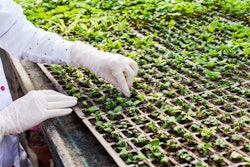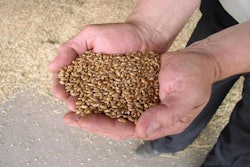
The Organic Trade Association has kicked off a groundbreaking pilot project by the organic industry to prevent and detect fraud in the global organic system.
The far-reaching three-month pilot project was initiated by the Global Organic Supply Chain Integrity (GOSCI) Task Force of the Organic Trade Association. This group of 48 members of the trade group was formed in 2017 to develop a fraud prevention program designed specifically for the organic industry that organic companies will be able to voluntarily enroll in. As the first step toward this program, a comprehensive “best practices” guide was created by the task force to facilitate the industry-wide implementation of systems and measures to preserve the integrity of organic, both inside and outside of the United States.
“Organic now operates in a global market. Fraud is one of the biggest threats to that market, and it cannot be tolerated in the organic system,” said Laura Batcha, CEO and executive director of the Organic Trade Association, in announcing the initiative at the association’s Annual Policy Conference in Washington.
Participating in the pilot project are 11 members of the GOSCI Task Force, representing the entire organic supply chain, from farm to retailer and a diverse range of products, services and commodities including fresh produce, grain, spices, dairy, eggs, meat, beverages, packaged and prepared foods, importers and consulting services. Pilot participants are:
- Clarkson Grain Co. Inc. (handler/processor/feed grains/oilseeds)
- Egg Innovations L.L.C. (producer/handler/eggs, livestock feed)
- Global Organics Ltd. (handler/importer)
- Grain Millers Inc. (handler/processor/grains)
- I Was Thinking (importer/handler/co-packer, grains, seeds, legumes, sweeteners)
- MOM’s Organic Market (retailer)
- Organically Grown Co. (distributor/produce)
- Organic Valley CROPP Cooperative (producer/handler/livestock/dairy/meat)
- Pipeline Foods L.L.C. (handler/supply chain solutions/feed grains/oilseeds)
- J.M. Smucker Co. (processor/multi-ingredient)
- True Organic Products Inc. (manufacturer/fertilizer)
The pilot will run from June to September. It is designed to be an intensive-focused exercise in which participants will “test drive” in their specific businesses the fraud prevention and detection strategies developed by the GOSCI Task Force. Participants will concentrate on one product or ingredient, or a specific location to run through the pilot program. During the pilot, the participants will seek comments from other stakeholders in their unique supply chain, then share feedback on their experiences and give recommendations on how to improve and strengthen the suggested strategies.
Collaborating partners in the project are the U.S. Department of Agriculture’s National Organic Program, the Accredited Certifiers Association, and NSF International. The collaborating partners will review and provide feedback on the recommendations put forth by the task force, as well as provide support on implementation and adoption efforts, as agreed with pilot participants.
The fraud prevention plan, which was presented to the National Organic Standards Board in draft form at the Board’s 2018 spring meeting, provides organic businesses with a risk-based approach for developing and implementing a written strategic plan to assure the authenticity of organic products. The plan focuses on identifying and assessing specific weaknesses or vulnerabilities in their business that pose the most risk of fraud, identifying and taking measures to reduce those vulnerabilities to deter fraud, establishing a monitoring program to ensure the fraud prevention measures are in place, and developing a complaint system to be used when fraud is suspected or detected.
The recommended practices are intended to establish an industry standard for businesses to create continuously improving internal programs and processes for achieving organic integrity throughout their associated supply chains.
Criticism from The Cornucopia Institute
The Cornucopia Institute, an organic industry corporate/governmental watchdog, said it has petitioned the U.S. Department of Agriculture to engage in immediate, emergency rulemaking emulating the decisive action the European Union has taken to address organized crime’s involvement in organic exports.
"The guide the OTA created and references in the news release is comprehensive," said Anne Ross, farm policy analyst for The Cornucopia Institute. "It outlines ways businesses can implement internal policies based on risk to identify fraud in their supply chains.
"But it's utility is worthless if certified entities aren't incentivized by regulatory requirements and the risk of meaningful penalties to actually implement these policies. Unfortunately, for some multinational/multimillion-dollar companies, the incentive is profit, not integrity," she said.
"Without regulatory changes that require all entities in the supply chain be certified, backed by strict USDA/NOP enforcement, there is no guide (no matter how thorough) or task force (no matter how dedicated) that will deter and stop fraud."
















